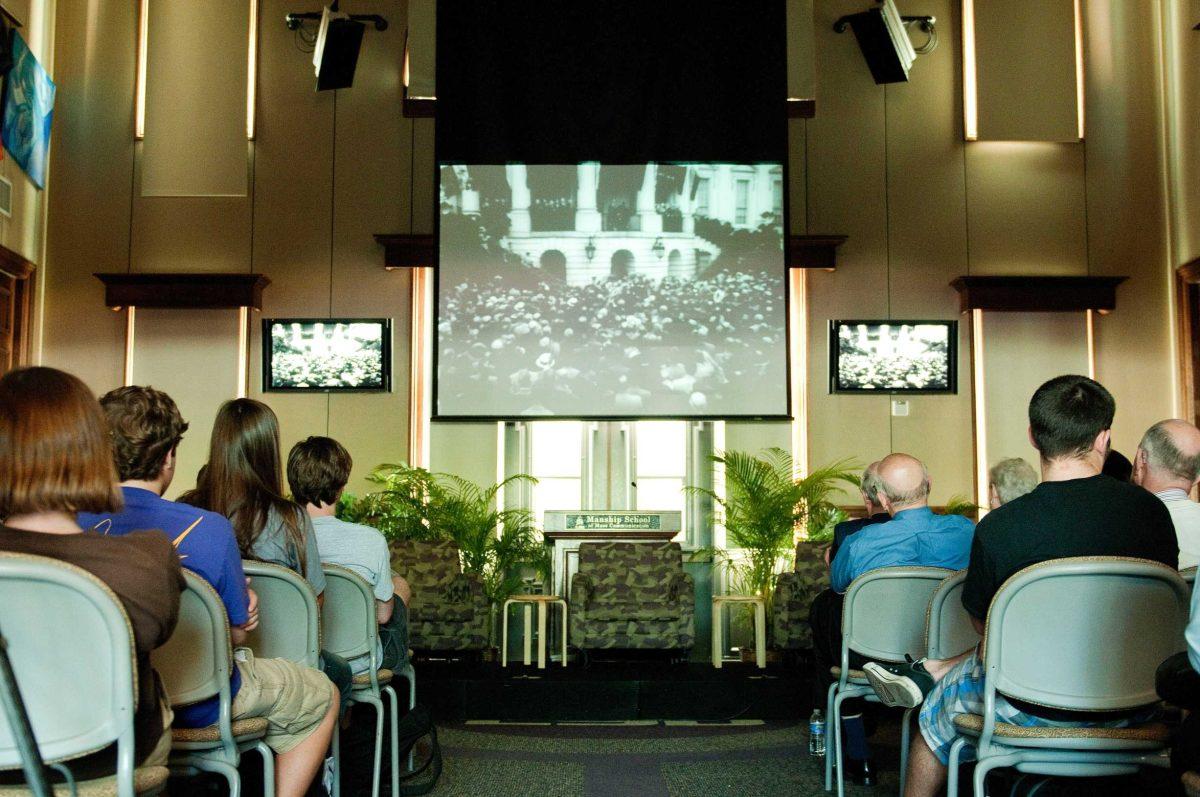In a hot, crowded convention hall in Philadelphia, Hubert Humphrey addressed a bitterly divided 1948 Democratic National Convention.
He stepped forward to the glaring lights that washed over the podium, sweat dripping from beneath his suit.
“The time has arrived in America for the Democratic Party to get out of the shadow of states’ rights and to walk forthrightly into the bright sunshine of human rights,” he said, his voice high and emphatic.
The crowd went wild, applauding for 10 uninterrupted minutes. The motion passed, the Southern Democrats stormed out of the convention to start the Dixiecrat Party, and the nation took its first steps toward real political action on civil rights.
With those words, Humphrey launched himself into the national political spotlight and into a distinguished, history-making career.
The story of that career is being told anew in a recently released PBS documentary called “Hubert H. Humphrey: The Art of the Possible.” The documentary premiered Monday in the Holliday Forum of the Journalism Building.
The premiere was followed by a panel discussion featuring Mick Caouette, the film’s producer, and two Humphrey staffers.
Raised in South Dakota, Humphrey (May 27, 1911- Jan. 13, 1978) moved to the South in the late 1930s to pursue a political science master’s degree at LSU. He spent his first few nights in the decrepit dormitories under Tiger Stadium until he found housing elsewhere for himself, his wife and child.
In his autobiography, he describes his amazement at the “campus politics, fueled by hysteria and enthusiasm,” and his shock at “the viciousness, the personal vitriol, the character assassination” of state politics. He also witnessed first hand the “institutional white paternalism” that defined race relations in the South.
Sixteen years later, the nation was ripping at the seams over racial inequality.
President Lyndon Johnson needed a legislative leader to pass a civil rights bill and immediately turned to Humphrey, who by now was a respected senator.
Humphrey was able to overcome an almost two-month-long Southern Democrat filibuster. On July 2, 1964, Johnson signed the Civil Rights Act.
Humphrey would go on to serve as vice president and run for president, losing by less than a percentage point to Richard Nixon.
He retired from the Senate after 33 years of public service.
At the documentary’s premiere, two Humphrey staff members remembered the senator, commenting on his boundless energy and magnanimity.
John Stewart, who served as Humphrey’s legislative and executive assistant during the passage of the act and his tenure as vice president, said Humphrey was a decent man and a brilliant policymaker.
“Humphrey could do things cosmically,” he said. “But he could also do things that touched you.”
Stewart said Humphrey had almost limitless energy.
“It would wear you out,” he said. “You really had to work hard. He figured because he could do these things, everybody who walked the earth could do them, too.”
Norman Sherman, Humphrey’s press secretary during his tenure as a senator and vice president, says the film captures the politician’s vigor.
“I can’t tell you how exciting it was to work for him,” he said. “He had an extraordinary ability to move people.”
—-
Contact Matthew Albright at malbright@lsureveille.com
Documentary honors alumnus’s career
September 28, 2010
An audience watches a screening of the film “Hubert H. Humphrey





